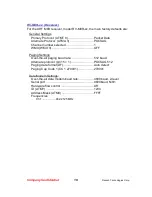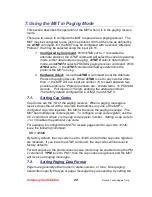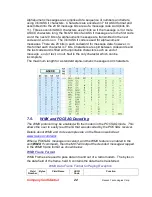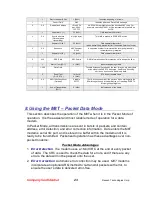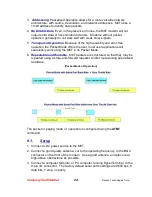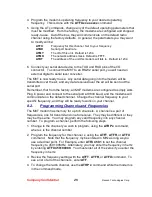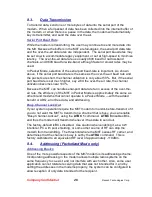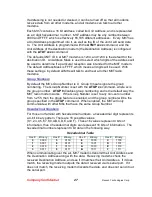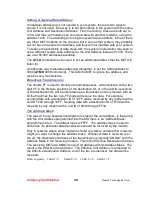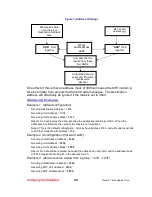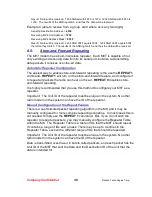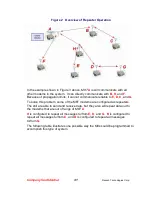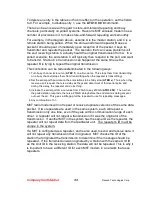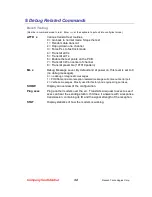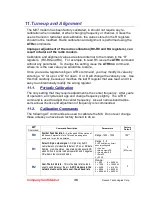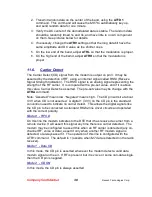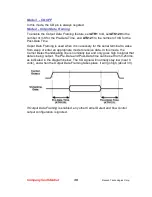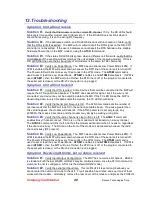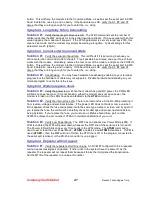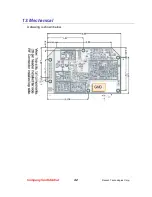
Company Confidential
33
Raveon Technologies Corp.
To delete an entry in the table so it has no effect on the operation, set the fields
to 0. For example, to disable entry 1, use the
ATX1 0 0 0 0
command.
There can be an issue with regard to store-and-forward repeating and busy
channels, particularly on polled systems. Raveon’s M8T wireless modem has a
number of provisions in it to make store-and-forward repeating work smoothly.
For example, in the diagram above, assume A is the master station, and C is a
remote station being polled. When the store-and-forward repeater B sees a
packet it should repeat, immediately upon reception of the packet, it keys its
transmitter and repeats the packet. The scenario that can cause problems is if
the end receiving station C actually heard the original transmission from A. In a
polled scenario, the end station C will typically then respond to the poll, and want
to transmit. Station C’s transmission can happen at the same time as the
repeater B is trying to repeat the original transmission.
This contention can be reduced/eliminated in the following ways:
1. Turn busy-channel lock-out on (
ATBC 1
) on all modems. This stops them from transmitting
on a busy channel (stops them from transmitting when the repeater is transmitting).
2. Set the serial port baud-rate on the end-stations to be fairly slow (
ATBD x
). Thus, when they
receive a poll request, there is a delay as they send data in/out of their serial ports, and
during this delay, the repeater can do its thing.
3. Increase the serial port time-out value from 20mS to say 250mS (
ATR3 250
). Then, when
the polled station responds, there is a 250mS delay before the end station’s data gets sent
out over the air. This gives a little gap for the repeater to use for repeating messages.
4. Any combination of 1-3.
M8T radio modems will not repeat or receive duplicate versions of the same data
packet. If two repeaters are used in the same system, each will repeat a
transmission only one time, even if they are within communication range of each
other. A repeater will not repeat a transmission if it was the originator of the
transmission. If another M8T in the system has the same ID as the repeater, the
repeater will not repeat data from that particular unit. The repeater’s ID must be
unique in the system.
If a M8T is configured as a repeater, and is also used to send and receive data, it
will not repeat any transmission that it originated. M8T checks the ID of the
station that originated the transmission to determine if the message should be
repeated. If the transmission was originated by a station with the same Unit ID
as the Unit ID in the receiving station, the data will not be repeated. This is why it
is important to have a different ID for each M8T modem in a network that uses
repeaters.

